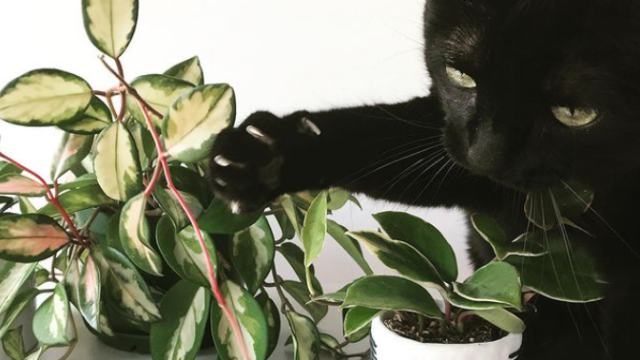
Clearly I am not the only one who loves the multicolor, pet-safe, chubby plants we call Hoya. While I’ve talked about them before on here, this is much overdo post. Even though these handsome, blooming babies seem intimating (are they a plant or succulent?), Hoyas are lovely plants that needed a proper L&P guide.
I’ll admit that I put off buying a Hoya for awhile. I’m not a huge fan of succulents and I really thought they were just expensive succulents. Then, there was a really pretty one at my local garden center – plump leaves covered in splattery pink and white and sweet smelling flowers overflowing the stems and I was like YAAASSSSS. Now here we are.
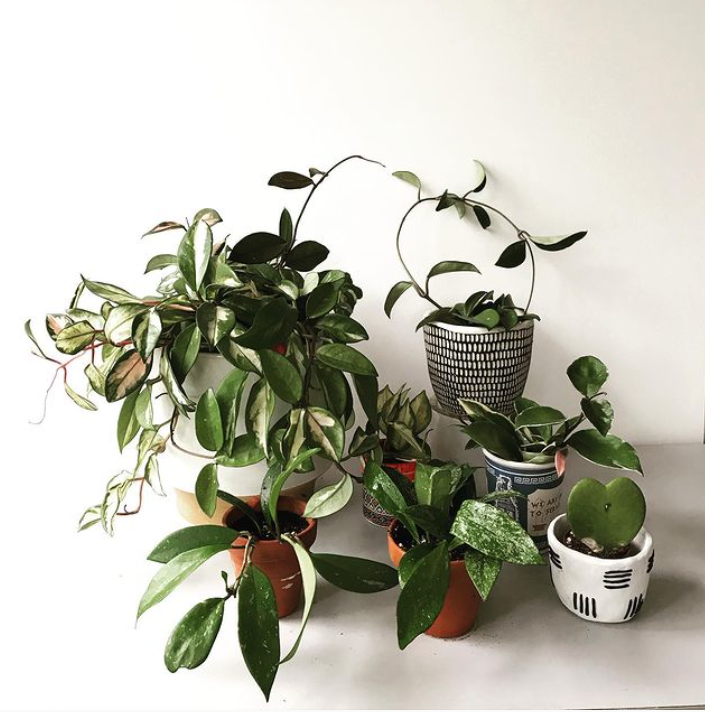
After falling in love with this new Hoya, who is named Charlie, I made another assumption that there are only a few varieties. WRONG. There’s like a billion. Enter this post. The point of this post is for you to not make assumptions and enjoy the plethora of Hoyas available to collect to your life’s content. As you read, you’ll discover some new varieties you may not know about, learn how to care for them, and also tell you the difference between Hoya carnosa varieties “Krimson princess” and “Krimson queen”. One just isn’t more royal than the other.
Types of Hoya
With the help of one of the lovely Anna/@littleandlush and @hiyakerri, here are the most common pet-safe Hoya varieties you can find. Mind you, there are 100s of varieties (Summer Ranye-Oaks has a great video on it), but here’s a great starter pack that includes those you can purchase easily from plant shops.
Hoya carnosa “Krimson princess”
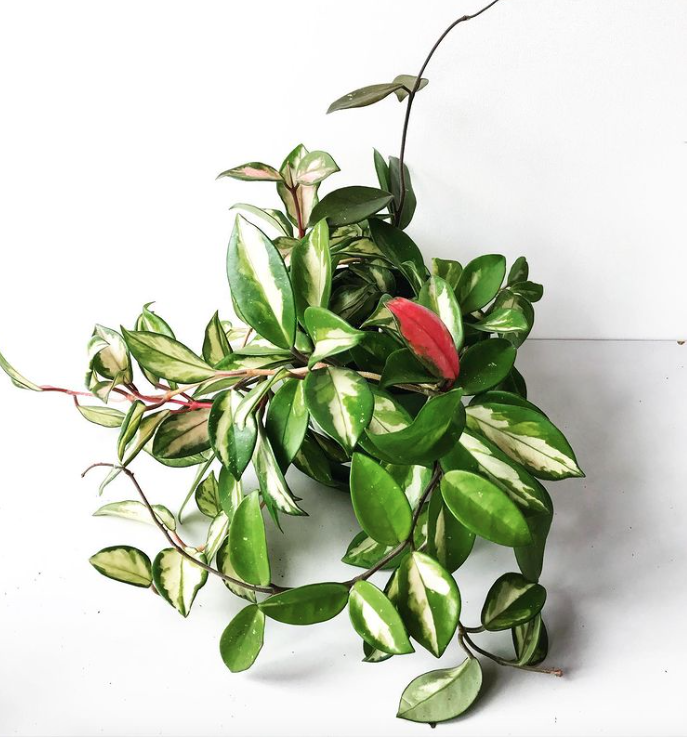
Hoya carnosa “Krimson queen”
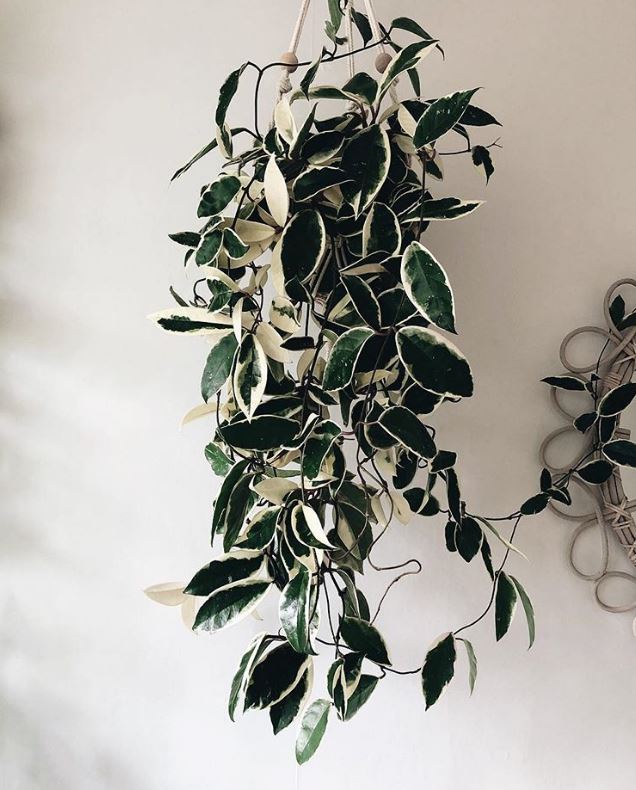
Hoya kerrii
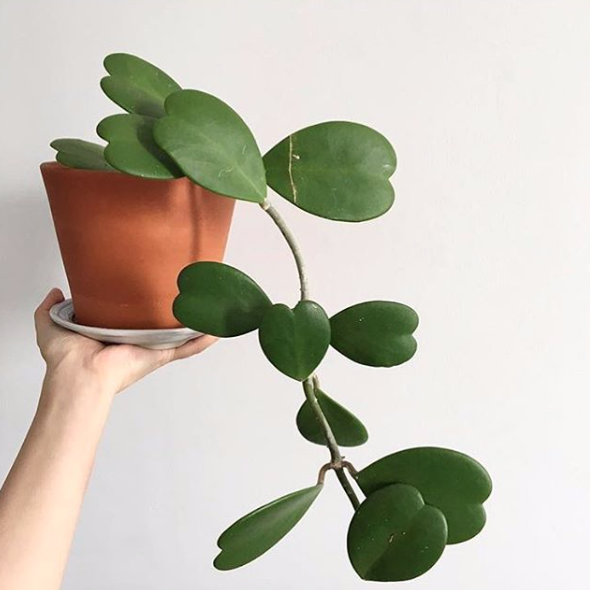
Hoya obovata “Splash”
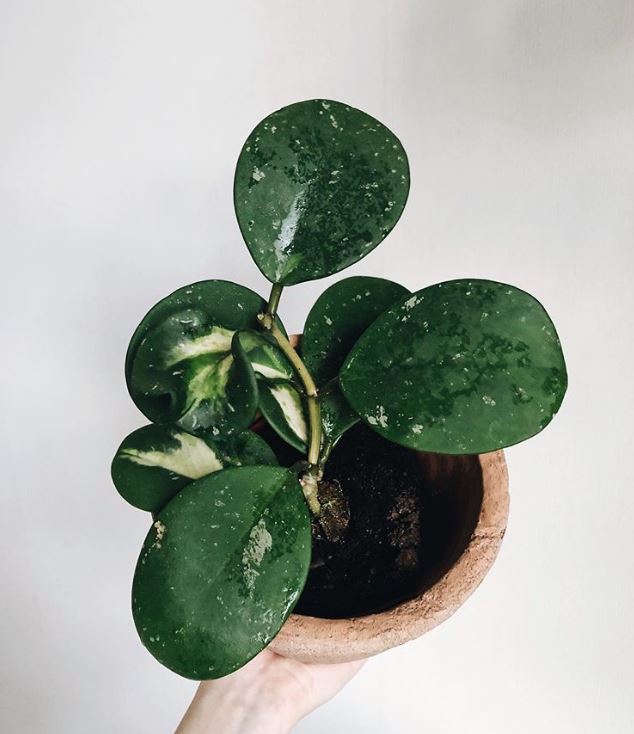
Hoya publicalyx
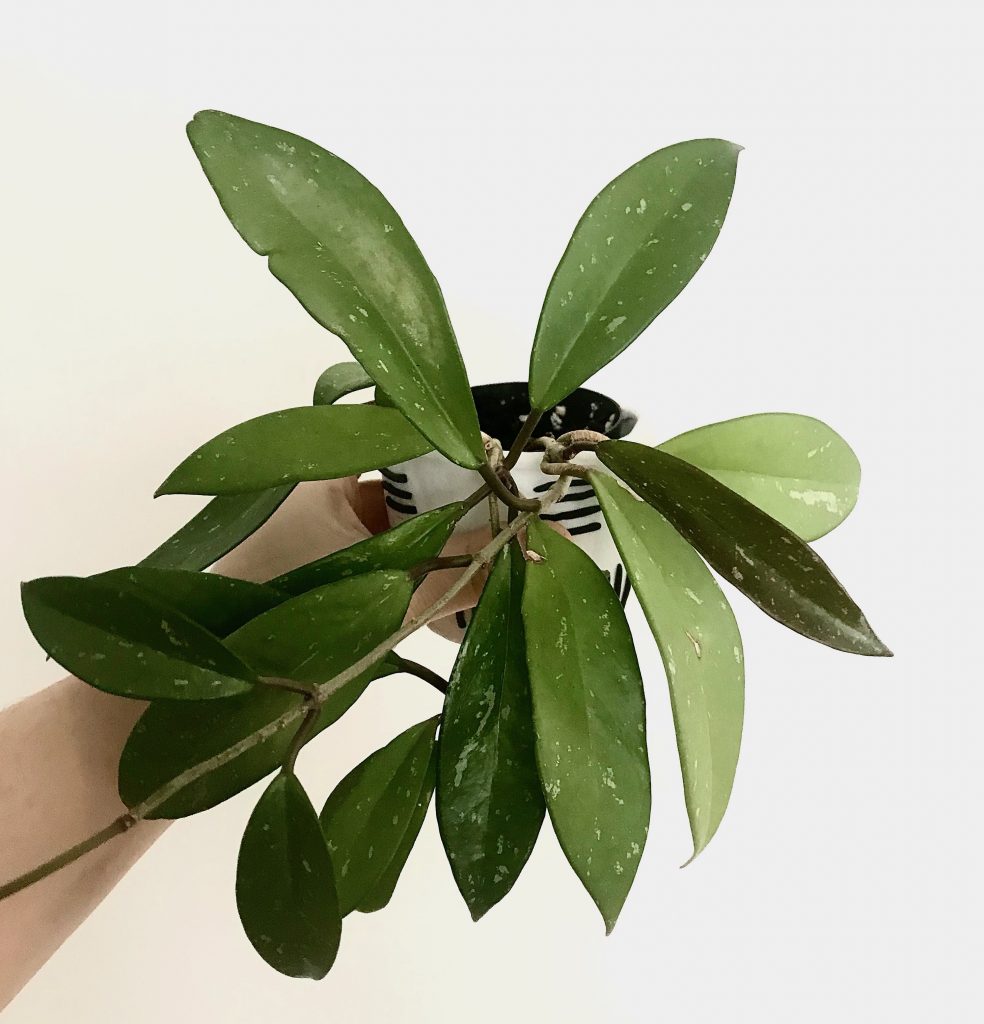
Hoya krohniana “Eskimo”
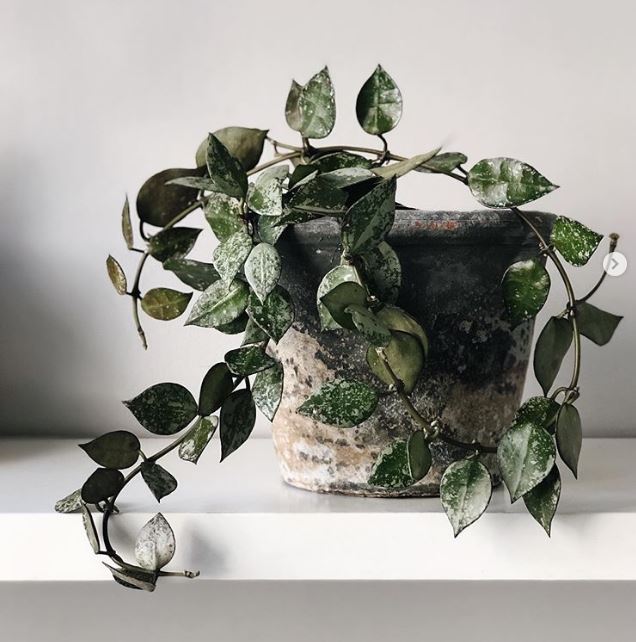
Hoya callistophylla
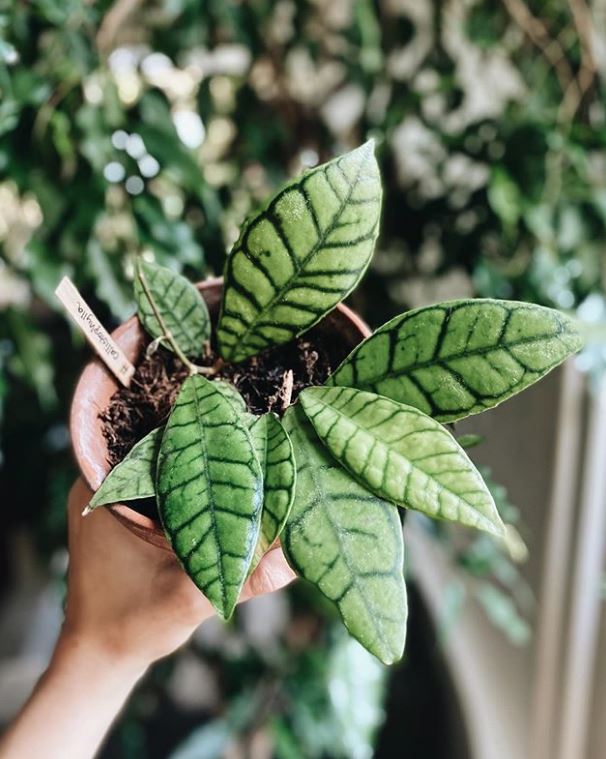
Hoya polyneura
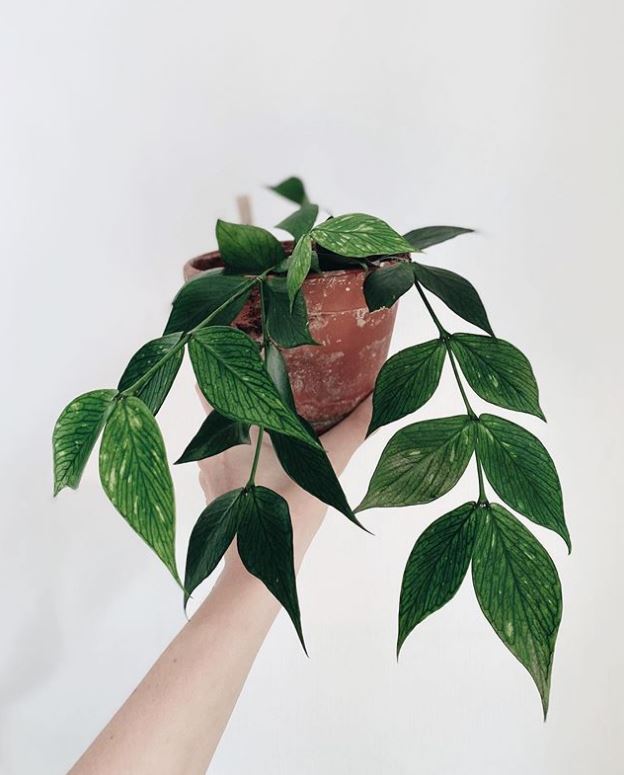
Hoya carnosa “Jade”
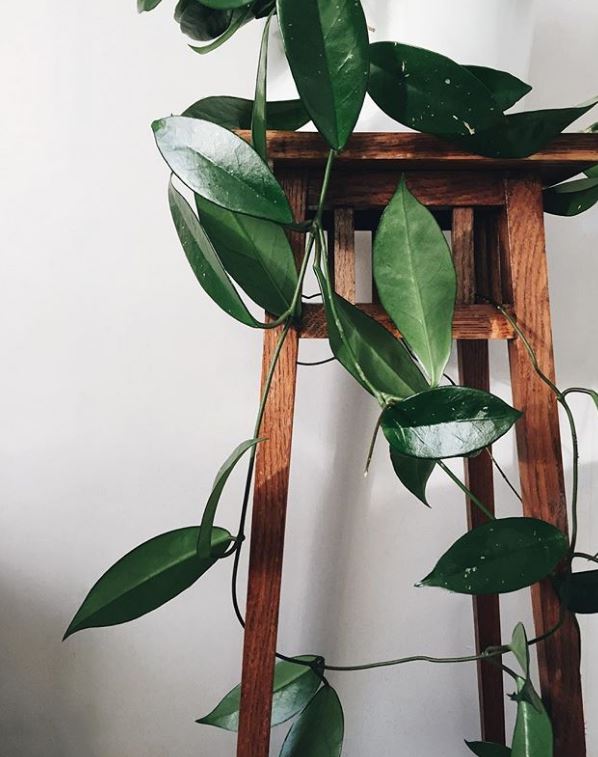
Hoya kentiana “variegata”
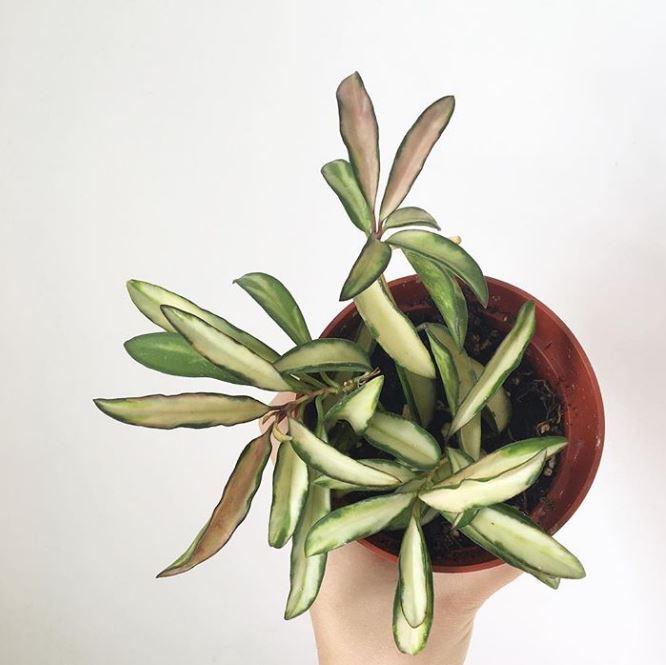
Hoya compacta “variegata”
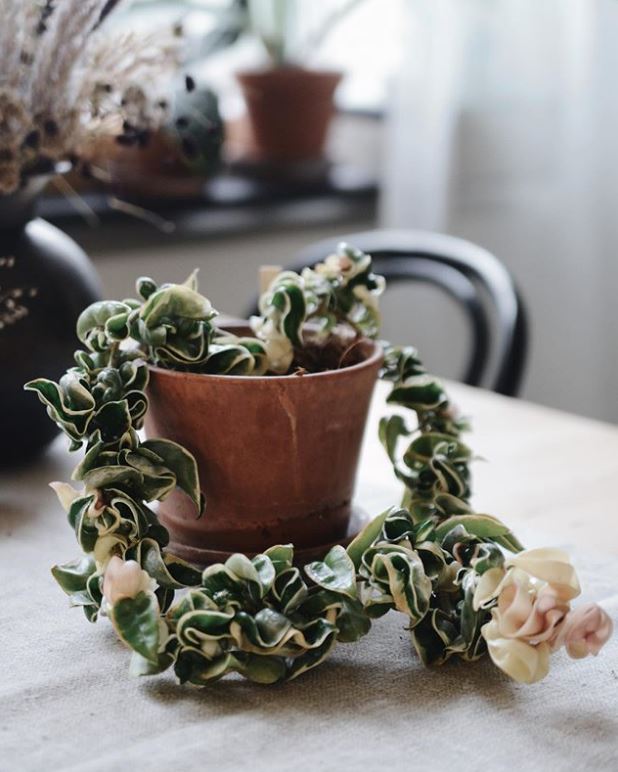
Hoya mathilde
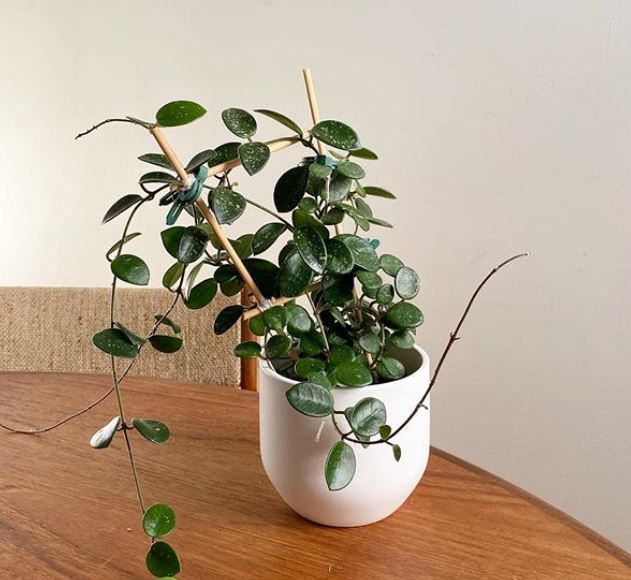
Caring for Hoya
Let’s go back to that idea that Hoyas are kind of like succulents. It’s not wrong, they kind of act like succulents. With plump, water-holding leaves and a shallow root system, I find they’re happier when care is similar to those in the succulent category. Hoyas are actually called wax plants for the toughness of their leaves and waxy film and texture.
Watering: The number one killer of Hoya is overwatering, hands down. After a bit of a learning curve and filing through lots of misinformation online, I realized that letting them completely dry out paired with direct sun is key in keeping them happy. That’s it. Don’t water every week or at a specific time, just water when they are very dry. Those plump little leaves hold more water than you think, so overwatering makes them sad and soggy.
Light: So here’s the thing about light, Hoyas will do ok in medium light conditions, but they won’t flourish. Those punchy colors and stark variegation result from very bright sunlight. I keep mine in a South window, which gets ample sun all day long (with a couple hours of direct sun) and they are really into it.
Potting: The happiest Hoya are somewhat pot-bound. Terra cotta or plastic pots are fine – my Hoyas are in a mix of both. Also, some Hoya varieties are climbers, such as carnosa, publicalyx, and keriii, and don’t mind a trellis to wrap themselves onto.
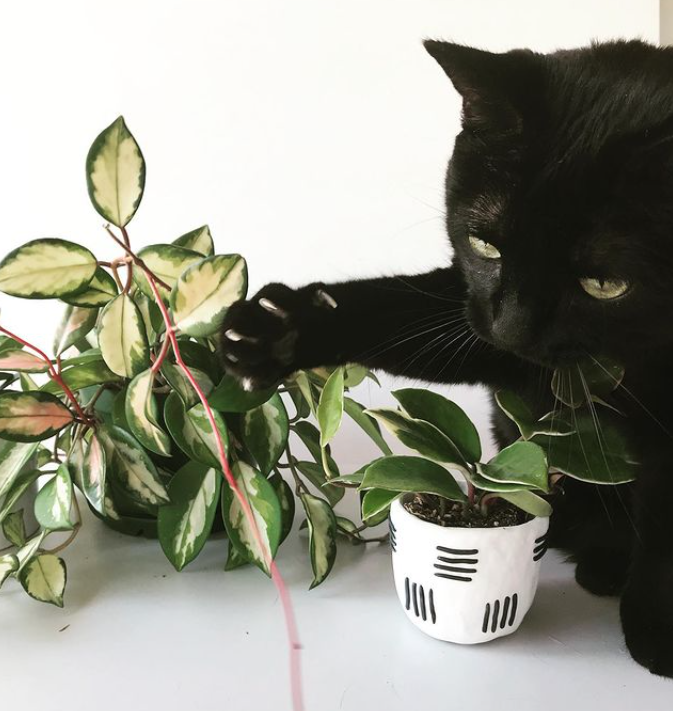
Pet Safety
As mentioned above, Hoyas are pet safe, which is great. While I wouldn’t leave them out for cats or dogs to gnaw on (no plant likes that), they seen to be naturally repulsive to animals. The leaves aren’t stringy (except a couple varieties) so they aren’t cat magnets. Either way, I have this great post on how to keep any plant, toxic or not, out of pet paws.
How to Get a Hoya to Bloom
Sure, Hoya leaves are pretty, but the flowers are where it’s at. Don’t be discouraged if your plant isn’t blooming right away. It takes pretty ideal conditions (lots of sun, etc) for it to happen, but when it does it’s magic and smells delish. Here are some tips to promote flowering:
- Hoya prefer to be pot bound or at least pot-snug to flower, too be sure your plant is not swimming in a planter.
- The plant should be mature, very young Hoyas do not bloom. A plant 5-6 years old has a good chance.
- Flowering is most common in late summer.
- When your plant does flower do not attempt to repot or move it too much. The flowers are very delicate and can fall easily.
- Hoyas like warmth. A drop in temp or even placed near a drafty window can cause the leaves to become soft and translucent and flowering will not occur.
A very common misconception is that, when flowers are spent, you must cut off the dead bits, like deadheading. Don’t do this. Flowers thrive on this stem chunk called a spur, which is a small cluster where the flowers were. It will keep pushing out flowers from this exact spot year after year, so trimming it will, you guessed it, stop new flowers from forming.
Hoya carnosa “Krimson princess” vs. “Krimson queen”
Hoya carnosa is a variety of Hoya which can be plain green (see Hoya carnosa “Jade” above) or variegated. The variegated types, “Krimson princess” and “Krimson queen,” look identical and always get mixed up. So, what is the difference?
Let’s find out:
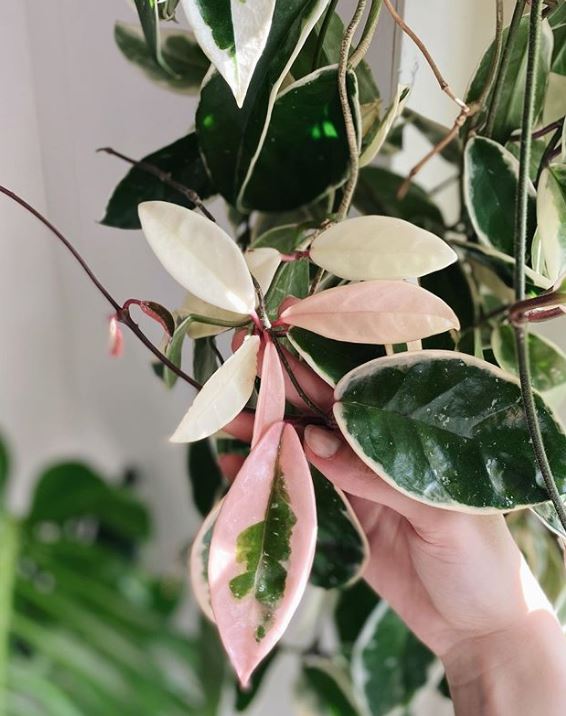
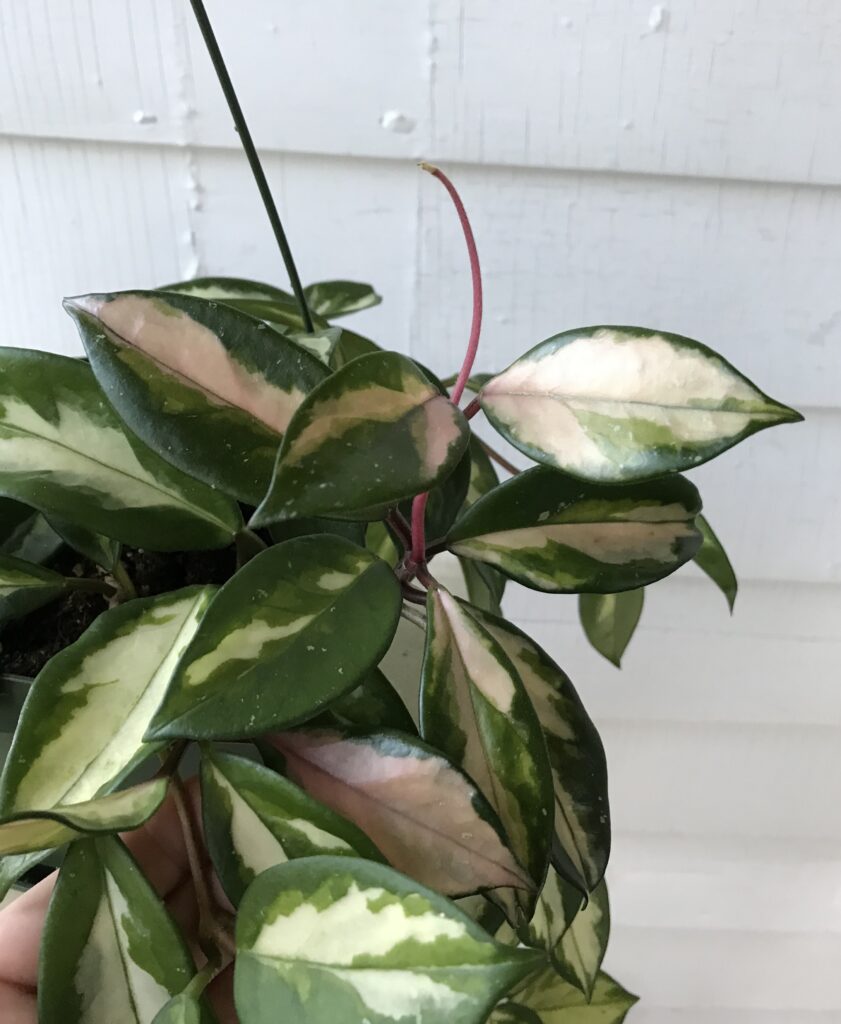
Krismson queen (left) has a creamy white or pink outline and green center. Sometimes they have a slightly speckled pattern on top and Queen has higher chance of pushing out those coveted white leaves. On the other hand, Krimson princess has green leaf edges and a very painted look. My Krimson princess (above) is a yellow-tinged variety (‘Rubra’) so the variegation includes shades of green, pinks, and yellows. I get very deep pink leaves in summer when sunlight is optimal, but not any all-white leaves. For either of these, bright light is key to making the colors pop.
Thanks for reading and if you have a Hoya to add to the list, leave a comment below. 🙂

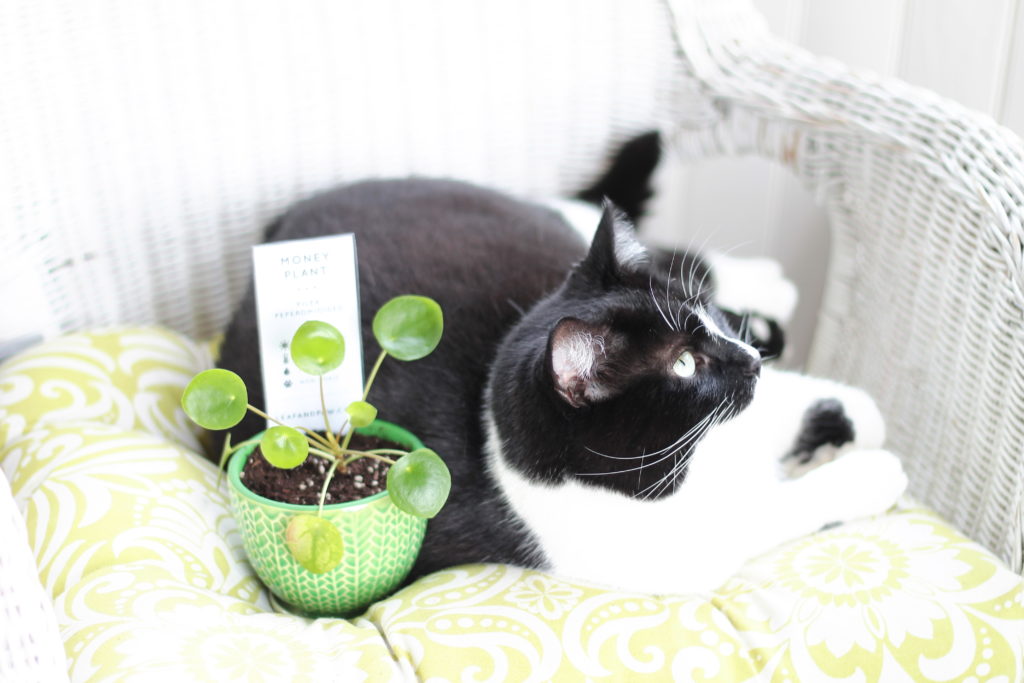

I cannot find the hindu rope hoya. My mom had one years ago and it was gorgeous. She gave it to a friend and sadly it died. Do you know where I can buy one?
Hi! These are pretty common on etsy and Amazon, actually and sometimes small local nurseries have them – I’ve even seen them at Lowes. I would call any local nurseries or garden centers and definitely check ebay, etsy and amazon.
Buying local is where it’s at ❤️
Thank you ? I’m interested in buying Hoya Carnosa, I will be visiting my local plant nursery to see if they have any in stock.
Is there anywhere online to send a picture of my Hoya to identify what type it is? Could be Carnosa, could be Rebecca, could be Krinkle 8 from what I’ve read.
Hi Donna! Feel free to send it to me via IG or facebook.
Any specific tips for Hoya Retusa?
Hi Tanille! These are a funny Hoya but grow just like the others. Keep in a bright location and only water when the soil is very dry. I actually have mine (I got a single node from a plant swap) and it took off in sphagnum moss and I will be transferring to soil this spring – if you have a small plant or a node I recommend putting it in sphagnum.
I received a heart shaped hoya and what to know the best way to care for it. I used to have the “jade” one but had to give it away when. We moved out of Alaska. I am hoping to find more .
The Hoya carnosa crimson queen and crimson princess are no longer named or labeled as such… they are now Hoya carnosa outer variegated and Hoya carnosa inner variegated.